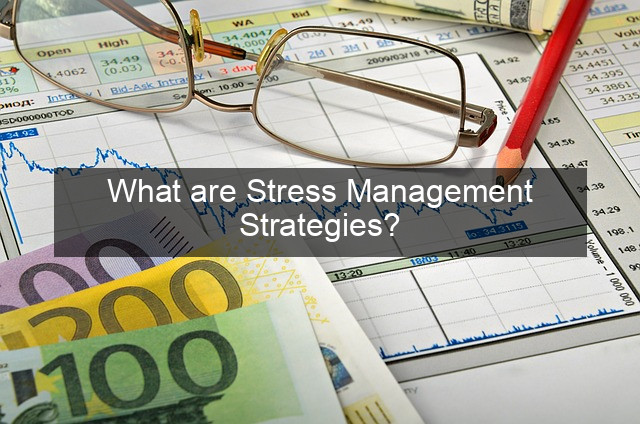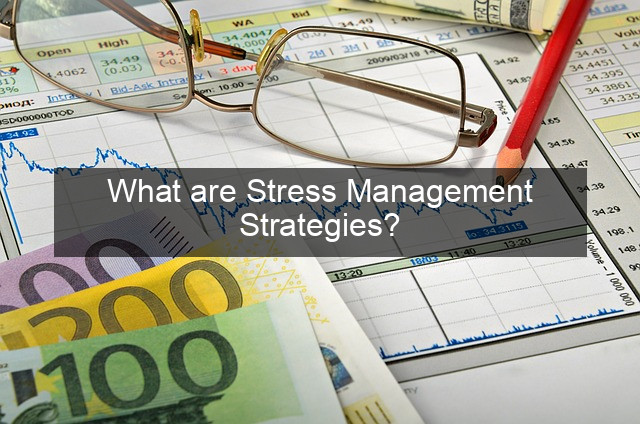What are Stress Management Strategies?

- What are Stress Management Strategies?
- What are Stress Management Strategies?
- Effective Stress Reduction Techniques
- Mindfulness and Meditation
- Physical Activity and Exercise
- Healthy Diet and Sleep
- Building Resilience and Coping Mechanisms
- Connecting with Others
- Time Management and Prioritization
- Conclusion
- Frequently Asked Questions

What are Stress Management Strategies?
Stress. It’s the uninvited guest that shows up at the worst possible times, impacting our physical and mental well-being. From deadlines at work to family responsibilities, modern life is filled with potential stressors. While a small amount of stress can be motivating, chronic stress can lead to serious health issues. Learning effective stress management strategies is essential for navigating the complexities of daily life and maintaining a healthy balance. These strategies empower us to not only cope with existing stress but also to build resilience against future challenges. This article will explore various techniques and approaches that can help you manage stress and improve your overall quality of life. Understanding how stress affects you and developing personalized coping mechanisms are crucial steps towards a calmer, healthier you.
Effective Stress Reduction Techniques
Mindfulness and Meditation
Mindfulness involves paying attention to the present moment without judgment. It encourages you to focus on your breath, body sensations, and thoughts without getting carried away by them. Regular mindfulness practice can reduce stress hormones and improve emotional regulation. Meditation, a form of mindfulness, involves focusing on a specific object, thought, or activity to train attention and awareness. It can calm the mind, reduce anxiety, and promote relaxation. Various meditation techniques exist, including guided meditation, loving-kindness meditation, and transcendental meditation. Experiment to find what works best for you.
Practicing mindfulness can be as simple as taking a few deep breaths throughout the day or engaging in a mindful walk. Notice the sensations of your feet on the ground, the air on your skin, and the sounds around you. These simple acts can bring you back to the present moment and reduce the power of stressful thoughts. Meditation apps and online resources can provide guided meditations and support for developing a regular practice. Incorporating mindfulness and meditation into your daily routine can significantly improve your ability to manage stress.
The benefits of mindfulness and meditation extend beyond stress reduction. These practices can also improve focus, enhance creativity, and promote emotional well-being. By cultivating a sense of presence and awareness, you can develop a greater capacity to cope with challenges and navigate life’s ups and downs with greater ease and resilience.
Physical Activity and Exercise
Exercise is a powerful stress reliever. Physical activity releases endorphins, which have mood-boosting effects. Regular exercise can improve sleep, reduce anxiety, and increase self-esteem. Engaging in activities you enjoy, such as walking, running, swimming, or dancing, can make exercise a fun and rewarding experience. Finding an activity that fits your lifestyle and preferences is key to maintaining a consistent exercise routine.
Even short bursts of activity can have a positive impact on stress levels. Taking a brisk walk during your lunch break or incorporating a few minutes of stretching into your morning routine can make a difference. Consider joining a fitness class or finding an exercise buddy for added motivation and support. Making exercise a regular part of your life can significantly improve your physical and mental well-being.
The benefits of exercise extend beyond stress management. Regular physical activity can also improve cardiovascular health, strengthen bones and muscles, and reduce the risk of chronic diseases. By prioritizing physical activity, you are investing in your long-term health and well-being.
Healthy Diet and Sleep
Nutrition plays a crucial role in stress management. A balanced diet rich in fruits, vegetables, and whole grains provides the nutrients your body needs to function optimally under stress. Limiting caffeine and alcohol intake can also improve sleep and reduce anxiety. Staying hydrated is essential for overall health and can help regulate mood and energy levels.
Adequate sleep is essential for managing stress. Aim for 7-9 hours of quality sleep each night. Establish a regular sleep schedule and create a relaxing bedtime routine to promote restful sleep. Avoid screen time before bed and create a sleep-conducive environment by keeping your bedroom dark, quiet, and cool.
Making healthy lifestyle choices, such as prioritizing a balanced diet and sufficient sleep, can significantly impact your ability to cope with stress. These foundational habits support your physical and mental well-being, enabling you to navigate challenges with greater resilience.

Building Resilience and Coping Mechanisms
Connecting with Others
Social support is crucial for managing stress. Talking to a trusted friend, family member, or therapist can provide emotional support and perspective. Connecting with others who understand what you’re going through can help you feel less alone and more supported. Building strong social connections can enhance resilience and provide a buffer against stress.
Participating in social activities and engaging with your community can also boost your mood and reduce stress. Volunteering, joining a club, or pursuing a hobby can provide opportunities for connection and support. Nurturing your social network can significantly improve your ability to cope with challenging situations.
Remember that seeking professional help is a sign of strength, not weakness. A therapist can provide guidance and support in developing healthy coping mechanisms and managing stress effectively. Don’t hesitate to reach out for professional support when needed.
Time Management and Prioritization
Effective time management can significantly reduce stress. Prioritize tasks, break down large projects into smaller, manageable steps, and learn to delegate when possible. Creating a realistic schedule and sticking to it can help you feel more in control and less overwhelmed. Learning to say no to commitments you can’t handle is also essential for managing your time and energy effectively.
Utilizing time management tools, such as calendars, to-do lists, and productivity apps, can help you stay organized and on track. Identify time-wasting activities and eliminate them to create more space for activities that promote well-being. Effective time management can reduce stress and enhance productivity.
By prioritizing tasks and managing your time effectively, you can reduce feelings of overwhelm and gain a sense of control over your schedule. This can significantly improve your ability to manage stress and enhance your overall well-being.
Conclusion
Managing stress effectively is crucial for maintaining physical and mental well-being. By incorporating the strategies outlined in this article, you can develop a personalized approach to stress management that works for you. Remember that finding what works best may require experimentation and patience. The key is to be proactive in addressing stress and to prioritize self-care. By implementing these techniques, you can navigate life’s challenges with greater ease and resilience, ultimately leading to a healthier and more fulfilling life. Stress management is an ongoing journey, not a destination, and making consistent efforts to prioritize your well-being will yield significant benefits in the long run.
Frequently Asked Questions
What are the common signs of stress?
Common signs of stress include irritability, difficulty sleeping, changes in appetite, fatigue, and difficulty concentrating.
How can I manage stress at work?
Managing stress at work involves setting boundaries, prioritizing tasks, taking breaks, and practicing relaxation techniques.
Is stress always a bad thing?
Not necessarily. A small amount of stress can be motivating. However, chronic stress can be detrimental to health.
What are some quick stress relievers?
Quick stress relievers include deep breathing exercises, taking a short walk, listening to music, or spending time in nature.
When should I seek professional help for stress?
If stress is significantly impacting your daily life and you’re struggling to manage it on your own, it’s important to seek professional help.
What are some relaxation techniques for stress?
Relaxation techniques include yoga, meditation, deep breathing exercises, and progressive muscle relaxation.
How can I improve my sleep to manage stress?
Improving sleep involves establishing a regular sleep schedule, creating a relaxing bedtime routine, and avoiding caffeine and alcohol before bed.
| Stress Management Strategy | Benefits |
|---|---|
| Mindfulness | Reduces stress hormones, improves emotional regulation |
| Exercise | Releases endorphins, improves sleep, reduces anxiety |
| Healthy Diet | Provides essential nutrients for coping with stress |
- Deep breathing: A simple yet effective way to calm the nervous system.
- Yoga: Combines physical postures, breathing techniques, and meditation.
- Spending time in nature: Can reduce stress hormones and improve mood.



